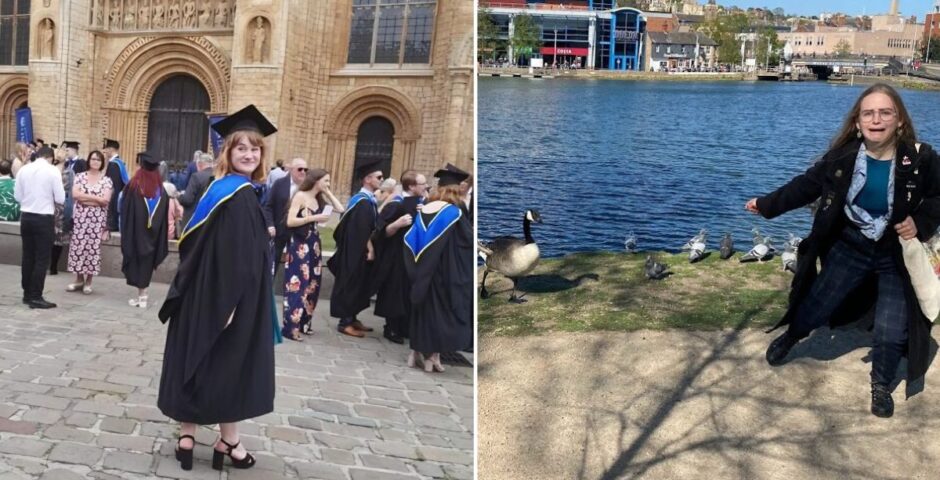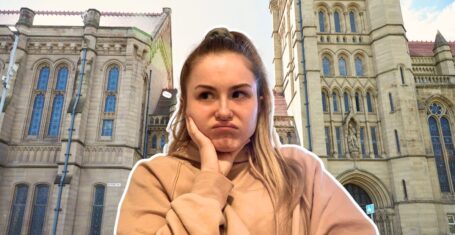
One in 10 private school students classed as disadvantaged by Edinburgh University
Students from a school which charges £40,000 were labelled as being disadvantaged
More than one in 10 applicants from private school backgrounds have been categorised as deprived by Edinburgh University’s admissions system, according to new data.
Findings by The Telegraph show that 12 per cent of applications submitted by those educated at fee-paying schools were classed as being from students who have suffered from a disadvantaged upbringing, despite their prestigious education.
The University of Edinburgh’s admissions system considers an applicant disadvantaged if they live in a postcode among the top 40 per cent of the poorest areas in Scotland. This means they are “prioritised for a place” on competitive courses at the university.
Because the system is largely based on geography, it means wealthier students who attended private schools but who happen to live within more deprived postcodes could be classed as disadvantaged. Oppositely, those who experienced a more deprived upbringing, but live within an overall wealthy area, are not always recognised as being worse off.
Edinburgh University says it uses data from multiple sources to determine which pupils should be flagged as disadvantaged, such as “socio-economic factors – including postcode and free meals at schools – as well as considering personal circumstances, such as whether the person has been in care or is a refugee”.
From our State School Stories video series, Lorna talks about why it is so important to be #StateSchoolProud 🎓
‘I think it’s really important to remind ourselves that you are worthy of your place here’ 👏 pic.twitter.com/a4d6oUXFNN
— The 93% Club Edinburgh (@93clubedinburgh) February 14, 2023
The system uses “flags” to determine the background of each applicant. Those considered to be from more deprived backgrounds are given a flag to allow them greater opportunity to gain a place. A ‘plus flag’ is given to those who are particularly disadvantaged, in exchange for near-guaranteed admission to the university.
For the 2022-23 academic year, 170 Edinburgh applicants from private schools were given a “flag”, around 12 per cent of all applications from independent school attendees.
Most Read
Students from one of Edinburgh’s most prestigious independent schools, which charges almost £40,000 in yearly fees, were categorised as coming from deprived backgrounds, The Telegraph claims.
It follows recent reports that no applicants without a “flag” were accepted to study law in the Scottish capital in 2022-23.
Speaking to The Telegraph, professor of educational policy at Edinburgh University, Lindsay Paterson, said: “These disturbing statistics show the inadequacy of crude measures of educational disadvantage.
“The university is behaving as if a student from a deprived neighbourhood who receives a bursary to attend an independent school is as deprived as a similar student who is unlucky enough not to benefit from that advantage. That’s absurd.
“Universities ought to be measuring students ‘potential to benefit from university courses. Yet universities refuse the difficult and controversial task of devising reliable tests of that potential.”
Scottish Labour’s spokesperson for education, Michael Marra MSP, told the paper: “The approach taken by the government to widening access to universities is riddled with loopholes and this is amongst the worst examples we have seen.
“Places supposedly ring-fenced for the most disadvantaged being handed out to pupils from the most elite of private schools”.
A spokesperson for the University of Edinburgh told the Edinburgh Tab: “We take our commitment to widening access very seriously and consider a range of measures to ensure that our approach is as fair and robust as possible.
“We use data from a number of sources along with information on UCAS applications to identify applicants for additional consideration in our contextual admissions process. This includes socio-economic factors – including postcode and free meals at schools – as well as considering personal circumstances, such as whether the person has been in care or is a refugee. Our contextual admissions measures are founded on research, institutional modelling and insight, and on current government policy”.
Related stories recommended by this writer:
• Only least privileged students accepted to study law at Edinburgh University
• Edinburgh University saves over £64,000 per day during strike action
• What we learn from listening to Edinburgh University’s state school students



















